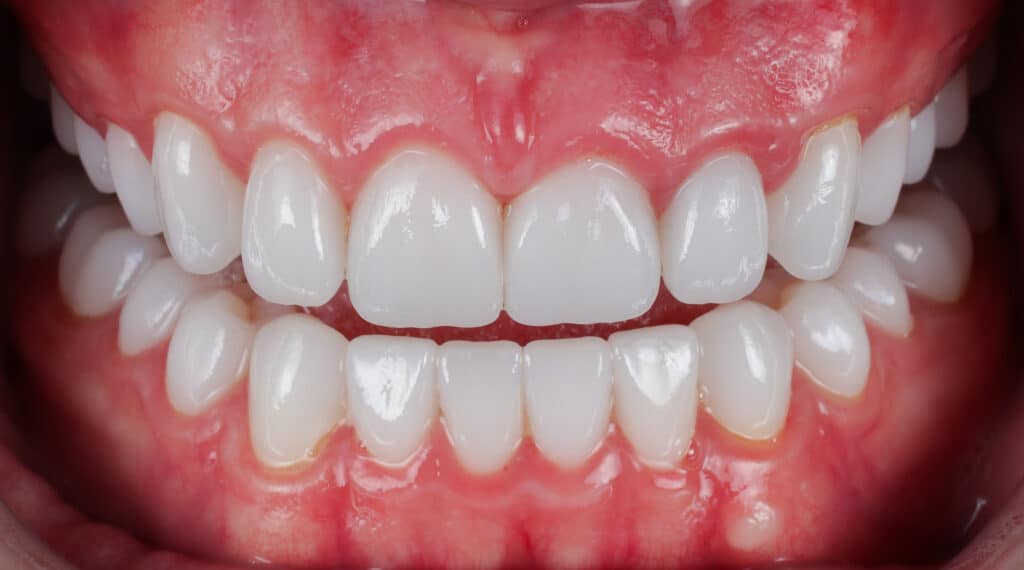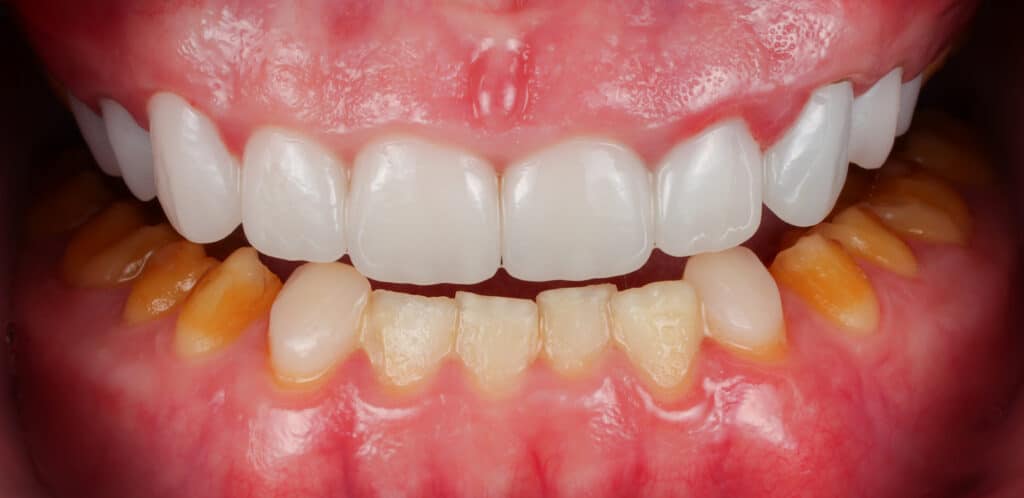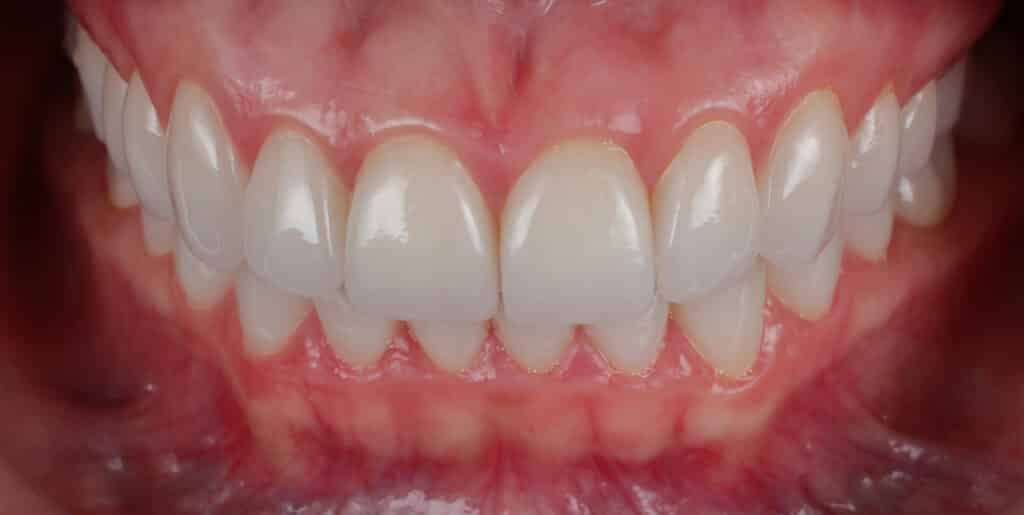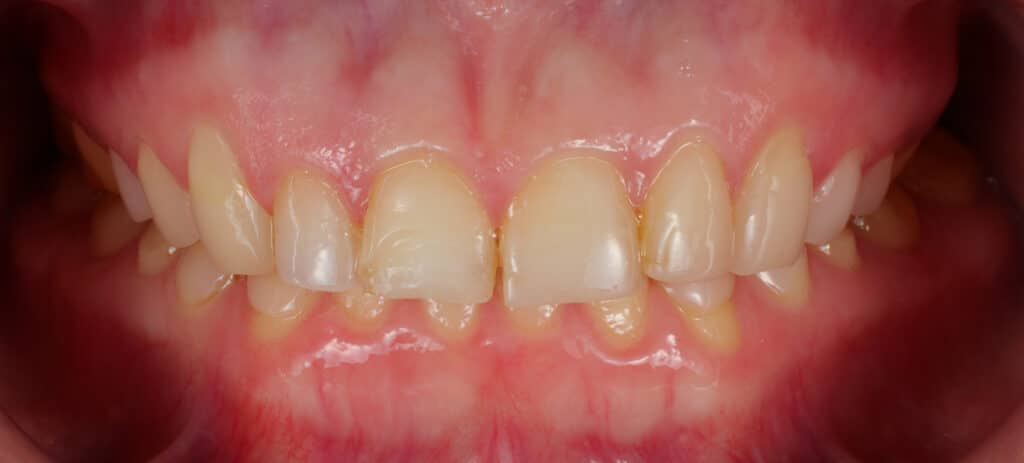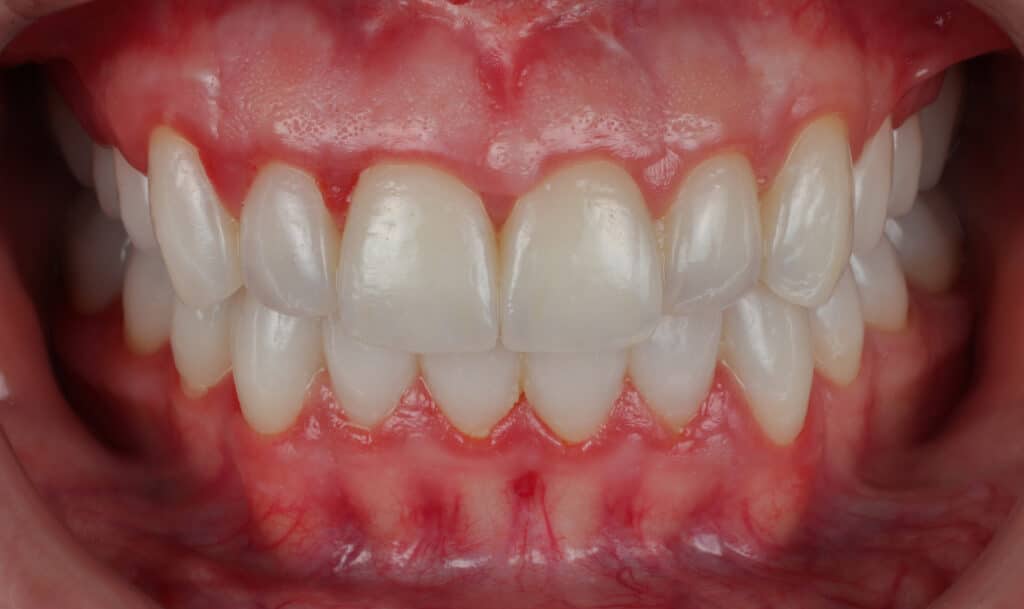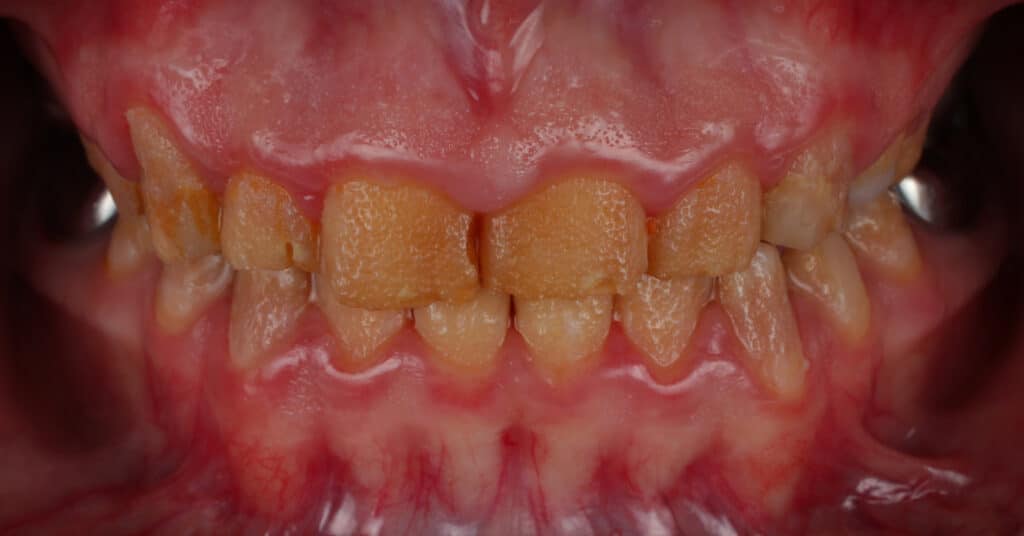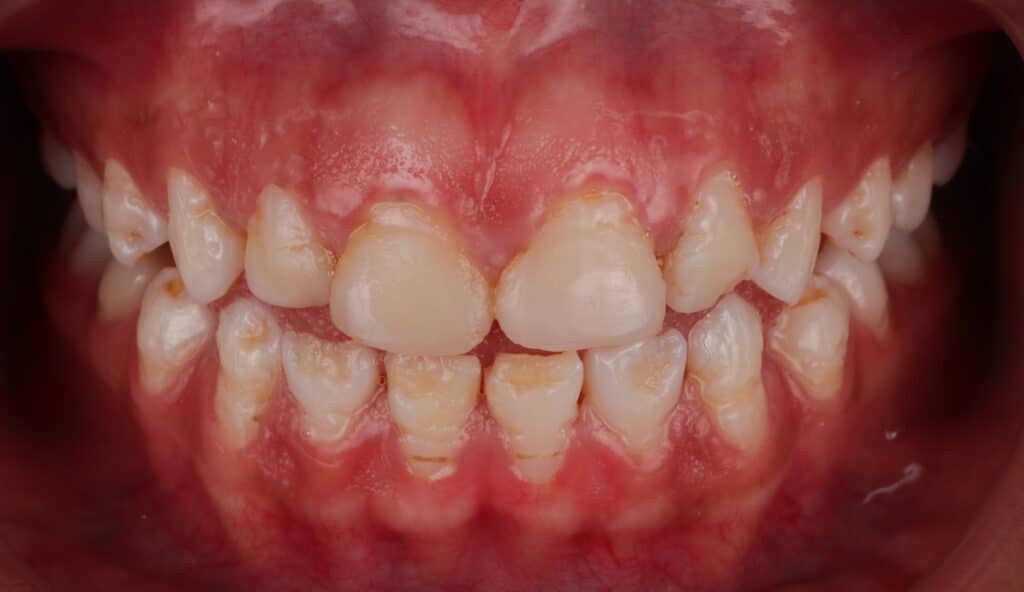Amelogenesis Imperfecta
This is a big word which basically means that there is hardly any enamel on the teeth due to a genetic condition. When you do not have enough enamel, your teeth can become super sensitive and break easily. Sometimes doing very basic things can hurt. For example, taking a deep breath of fresh air can cause serious pain or using regular toothpaste with cold water can make your teeth throb.
How Amelogenesis Imperfecta Affects Your Smile & Life
Enamel provides a hard coating to protect the inner part of the tooth and is called the dentin. Without good quality or quantity of enamel, your teeth can easily get worn down or even break. At Ozark Prosthodontics, we understand that people with Amelogenesis Imperfecta (AI) may have a higher risk of developing dental conditions like decay and loss of tooth structure, regardless of how many times they brush their teeth. We understand the complications of having super soft, crumbling teeth. We understand that not only do you want out of physical pain but that you also want out of emotional pain.
Our doctors have training and experience in working with patients just like you. We can start with just a friendly visit where we get to know each other. We will be super careful not to blow air onto your teeth, use cold or hot water on your teeth, and we will give you reassurance that we can help. We also have the capabilities of using sedation to help make sure that procedures go extremely comfortably. Your treatment plan will be customized just for you. We can help whether you are 5 or 55 years old.
Why OP?
Our OP doctors focus exclusively on complicated cases. Consequently, our doctors treat more rare conditions than most doctors see in a lifetime. We are renowned for using technology to assist with diagnosing and designing solutions for our patients. We are pioneers in creating more effective, less traumatic, and longer lasting treatment. Our specialists have completed advanced training in surgery and prosthetics. Our patients benefit from that quest by receiving not only the best treatments to minimize the impact of Amelogenesis Imperfecta and will also give them the best chance at a high quality of life.
We want to help. Please call.
Amelogenesis imperfecta is a congenital disorder that affects the development of tooth enamel. At Ozark Prosthodontics, our Fayetteville, AR team of experienced oral care and surgical professionals specialize in treating this condition. Below, we will discuss the impact of amelogenesis imperfecta and our treatment approach.
What Is Amelogenesis Imperfecta?
Amelogenesis imperfecta is a congenital disorder that is caused by mutations in the genes that affect enamel formation. The condition does not affect the dentin, pulp, or other parts of the tooth structure. While this may seem like only a slight concern, tooth enamel is an essential component of the tooth.
- Enamel is a hard outer layer that creates a protective barrier for the underlying dentin and pulp. Without it, teeth can become worn down more quickly, leaving them vulnerable to decay and other damage.
- Additionally, a lack of enamel can cause the teeth to be painfully sensitive to temperatures and acidic foods.
- The lack of enamel can also affect the appearance of a person’s smile—causing teeth to appear yellow or discolored.
There are four types of amelogenesis imperfecta—each characterized by the stage they form during the enamel development process.
- Hypoplastic amelogenesis imperfecta occurs in the formative stage of the enamel and is characterized by enamel that is patchy or poorly deposited throughout the mouth. The bite may also not fit together due to poorly developed crowns.
- Hypocalcification amelogenesis imperfecta occurs during the calcification of the enamel and results in an enamel that is soft and has a chalky consistency. The enamel is often rapidly worn away.
- Hypomaturation amelogenesis imperfecta results as the enamel matures and produces enamel that is soft—causing teeth to appear mottled with various degrees of discoloration varying from yellow to brown.
- Hypomaturation-hypoplastic amelogenesis imperfecta is characterized by both hypermaturation and hypercalcification of the enamel. This form of the condition may cause teeth to appear smaller than normal and discolored.
Treatment At Ozark Prosthodontics
The treatment of amelogenesis imperfecta involves addressing the symptoms and managing any underlying infection or decay caused by the condition.
- In ideal cases, when we are able to treat the teeth prior to significant damage, we can often restore the tooth with dental crowns to prevent deterioration or extraction of the tooth.
- If the condition has gone untreated for a considerable amount of time, we may recommend a more comprehensive treatment plan. This could include extraction of the tooth and placement of a dental implant.
- It is not uncommon in amelogenesis imperfecta cases for surgery, orthodontics, or myofunctional therapies to be necessary. This is to help restore the balance of the jaw and bite, as well as to improve facial structure.

At Cleft and Craniofacial Center of NWA, we provide state-of-the-art care to people of all ages with head and neck abnormalities, including traumatic injuries, birth defects or any condition where reconstruction is necessary to provide a better quality of life.
Why Choose Ozark Prosthodontics?
Ozark Prosthodontics is experienced in all aspects of treatment for amelogenesis imperfecta, and our experienced doctors will work with you to develop an individual plan that works best for your needs. Our treatment plans are tailored to the individual, and we take our time with each patient to explain all of the options in detail and help you make an informed decision. Overall, we recognize that this can be a painful condition and our mission is to help you find the best solution for your case as quickly as possible.
If you are living with amelogenesis imperfecta, we invite you to contact us for a consultation. Our team of specialists is ready to answer any questions and help you on your journey toward optimal oral health—call today!

